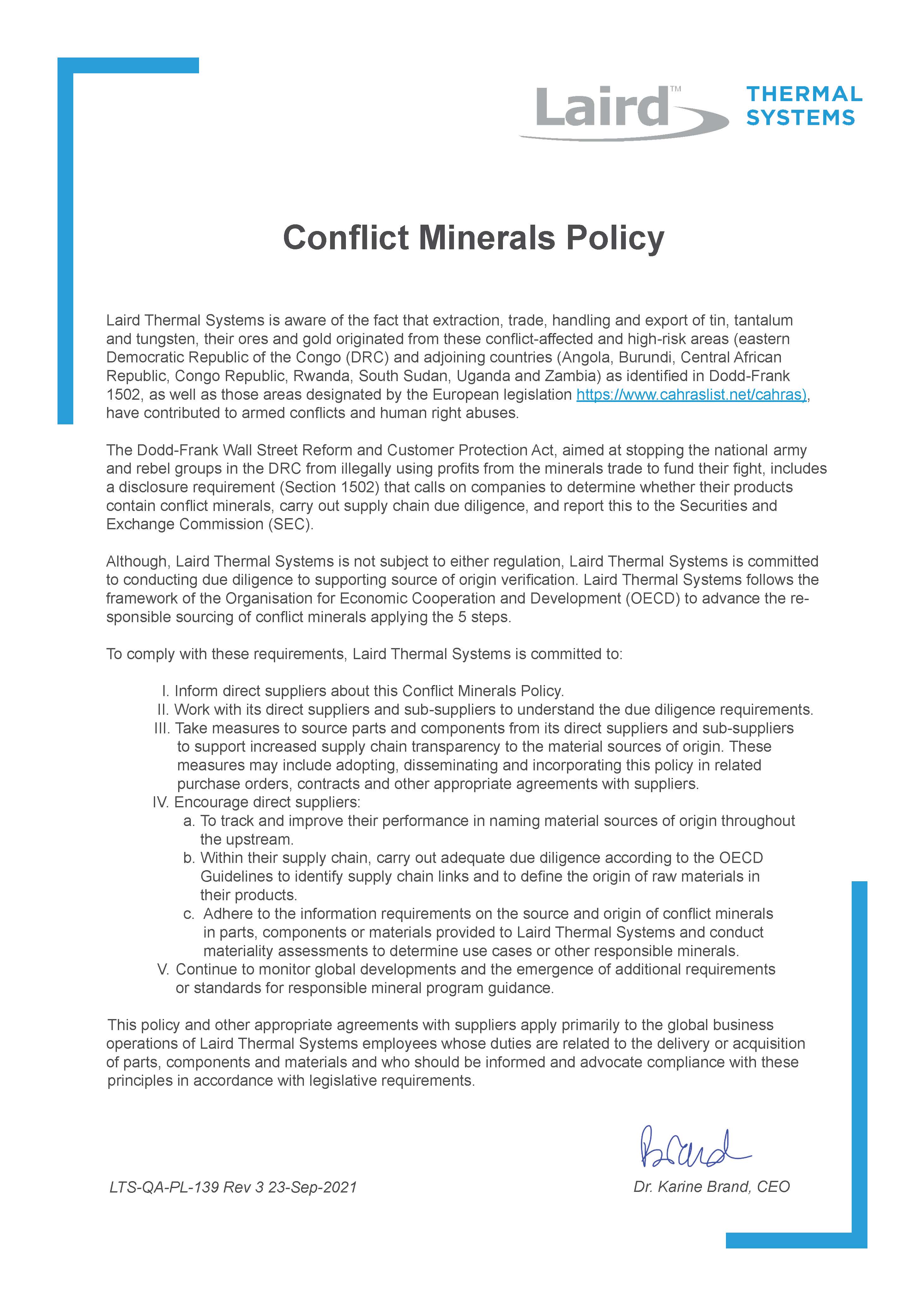Laird Thermal Systems is aware of the fact that extraction, trade, handling and export of tin, tantalum and tungsten, their ores and gold originated from these conflict-affected and high-risk areas (eastern Democratic Republic of the Congo (DRC) and adjoining countries (Angola, Burundi, Central African Republic, Congo Republic, Rwanda, South Sudan, Uganda and Zambia) as identified in Dodd-Frank 1502, as well as those areas designated by the European legislation https://www.cahraslist.net/cahras), have contributed to armed conflicts and human right abuses.
The Dodd-Frank Wall Street Reform and Customer Protection Act, aimed at stopping the national army and rebel groups in the DRC from illegally using profits from the minerals trade to fund their fight, includes a disclosure requirement (Section 1502) that calls on companies to determine whether their products contain conflict minerals, carry out supply chain due diligence, and report this to the Securities and Exchange Commission (SEC).
Although, Laird Thermal Systems is not subject to either regulation, Laird Thermal Systems is committed to conducting due diligence to supporting source of origin verification. Laird Thermal Systems follows the framework of the Organisation for Economic Cooperation and Development (OECD) to advance the responsible sourcing of conflict minerals applying the 5 steps.
To comply with these requirements, Laird Thermal Systems is committed to:
I. Inform direct suppliers about this Conflict Minerals Policy.
II. Work with its direct suppliers and sub-suppliers to understand the due diligence requirements.
III. Take measures to source parts and components from its direct suppliers and sub-suppliers to support increased supply chain transparency to the material sources of origin. These measures may include adopting, disseminating and incorporating this policy in related purchase orders, contracts and other appropriate agreements with suppliers.
IV. Encourage direct suppliers:
a. To track and improve their performance in naming material sources of origin throughout the upstream.
b. Within their supply chain, carry out adequate due diligence according to the OECD Guidelines to identify supply chain links and to define the origin of raw materials in their products.
c. Adhere to the information requirements on the source and origin of conflict minerals in parts, components or materials provided to Laird Thermal Systems and conduct materiality assessments to determine use cases or other responsible minerals.
V. Continue to monitor global developments and the emergence of additional requirements or standards for responsible mineral program guidance.
This policy and other appropriate agreements with suppliers apply primarily to the global business operations of Laird Thermal Systems employees whose duties are related to the delivery or acquisition of parts, components and materials and who should be informed and advocate compliance with these principles in accordance with legislative requirements.

